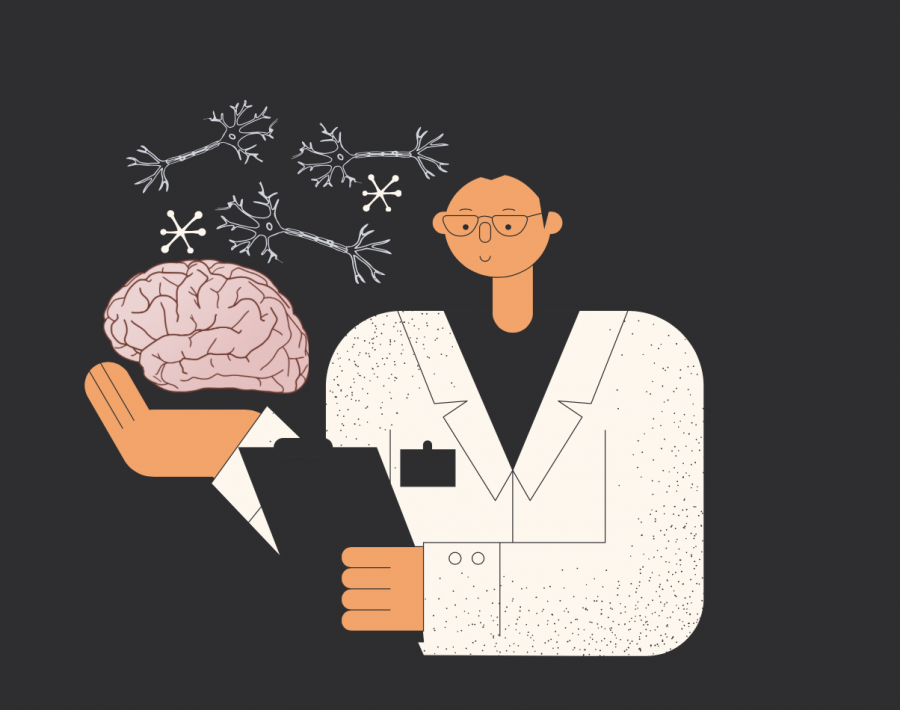Dr. Brent Harris visits Neuroscience and Cancer Research Society
Graphic by Keertana Senthilkumar
Dr. Harris spoke on neuropathology, his research on neurological effects of diseases, and the Georgetown Brain Bank. “Overall, having Dr. Harris speak at the Neuroscience Society was a treat, as he brought the combined perspective of a clinician, neuropathologist, and teacher in one, and showed us the multiple avenues to apply a neuroscience background,” freshman Benjamin Cohen said.
April 28, 2021
Dr. Brent Harris, Georgetown University director of Neuropathology, was a guest speaker for Jefferson’s Neuroscience Society and Cancer Research Society (CRS) on Friday, April 16 during 8th period.
“His profession isn’t commonly talked about in the field of neuroscience, which is why his visit was valuable for other students seeking to pursue a career in neuroscience,” sophomore and Neuroscience society member Samanvi Dammalapati said.
Dr. Harris’s visit was not only valuable for Neuroscience society members, though.
“Dr. Harris had a unique background in both neurology and oncology, which is why NeuroSoc [Neuroscience Society] and CRS decided to host him together. He is also the Director of the Brain Bank at Georgetown University, and was able to talk about how him and his colleagues collect and store brain and tissue samples, which was really fascinating to hear,” junior and Cancer Research Society co-president Sahil Gupta said.
Dr. Harris’s expertise about the Georgetown Brain Bank was especially novel.
“Before his lecture, I, along with many others, weren’t aware of what a Brain Bank is. After his talk, regarding the inner workings, benefits, and responsibilities, and different careers in the Brain Bank, that sparked more interest in the topic,” Dammalapati said.
Georgetown Brain Bank accepts brains from donors with neurodegenerative diseases.
“The Brain Bank typically uses one half of the brain to verify the diagnosis for the family and perform a microscopic neuropathological analysis,” freshman and National Brain Bee runner-up Benjamin Cohen said. “The other half of the brain is sectioned and preserved in wax blocks, which are available for researchers around the country to request as comparisons to normal tissue.”
The Georgetown Brain Bank has even assisted in research on how COVID-19 impacts the brain.
“Although the general rule during the pandemic has been not to accept donors who have tested positive for COVID-19, Dr. Harris has found an important rationale to carry out select research, which determined that the main way the coronavirus affects the brain is by causing inflamed, leaky blood vessels, rather than a direct infection,” Cohen said.
All in all, Dr. Harris’s wide range of experience in neuropathology garnered interest from many Jefferson students, even those who knew little about the subject before.
“The turnout was much better than we expected – we had 100 students attend the guest lecture!” Gupta said. “At the end, many students asked thoughtful questions and thanked him for giving his talk. It was great to see so many students engaged by his lecture, and you could tell they were really interested in what he had to say.”






